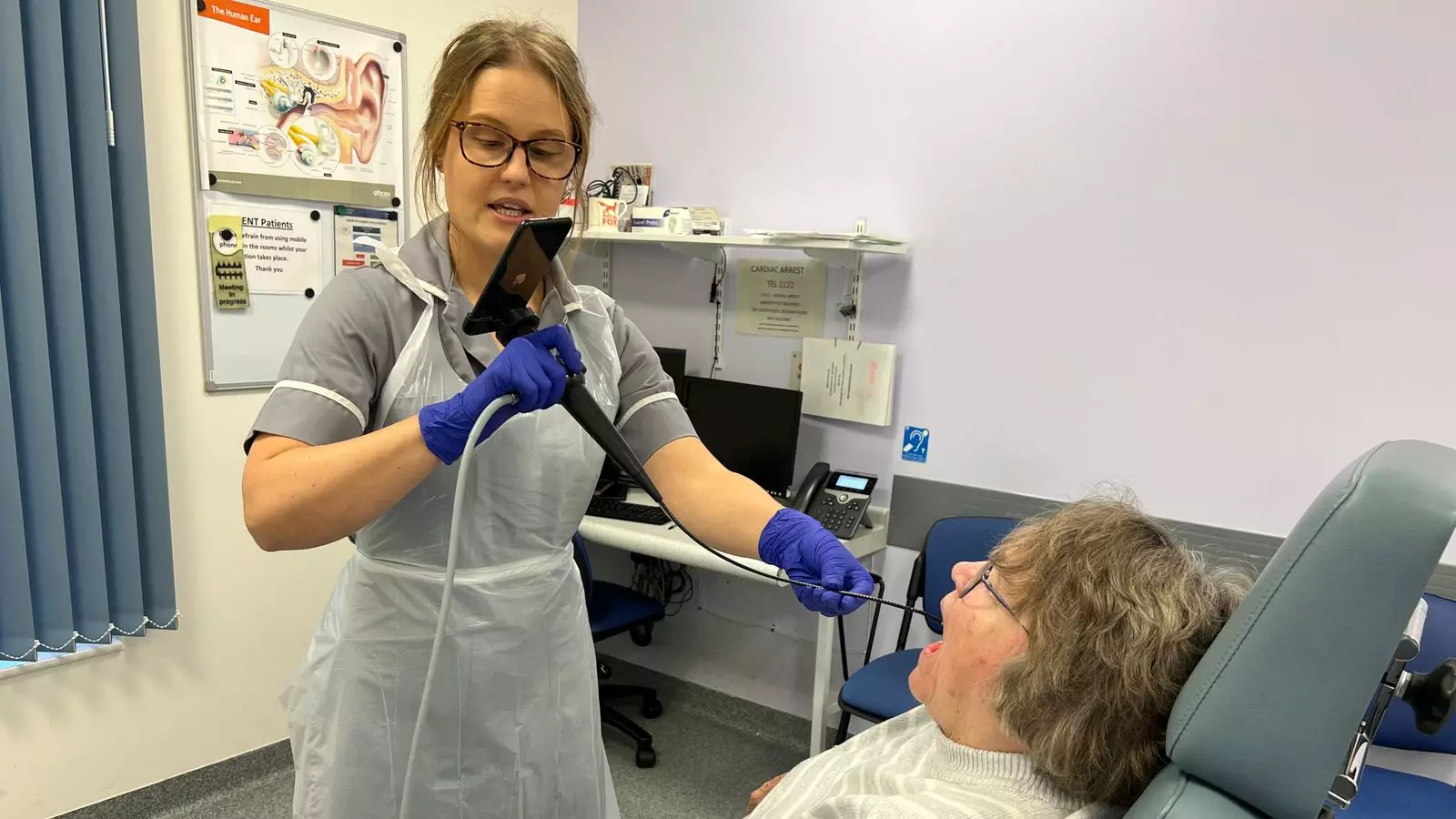The National Health Service (NHS) is stepping into the future of medical diagnostics with its latest experimental device — an iPhone adapter designed to facilitate swift testing for throat cancer. This innovative technology promises to transform the chilling experience of waiting for test results. Historically, patients anxious about a potential throat cancer diagnosis would undergo an endoscopy, a procedure that can evoke anxiety due to its invasive nature and the interminable waiting period for results. The endoscope-i adapter, leveraging modern smartphone capabilities, paves the way for prompt examinations, relieving patients of unnecessary mental burdens.
At the heart of the device is a 32mm lens endoscope eyepiece, which attaches conveniently to an iPhone. Alongside an application, it empowers healthcare professionals to record and transmit high-definition endoscopic footage. This capability allows specialists to review the footage quickly and efficiently, enabling faster diagnosis and reducing the traditional multiday waiting period to a mere matter of hours. The NHS’s trial, run by the North Midlands University Hospitals NHS Trust, stands testament to this device’s efficacy, as it has already yielded reassuring results for over 1,800 patients deemed low-risk while identifying cases of cancer in about one percent of those tested.
The insights shared by participants in the pilot program bring a human element to this technological advancement. Janet Hennessy, 76, from Stoke-on-Trent, expressed her enthusiasm about the device, highlighting the psychological distress associated with awaiting results. She articulated a sentiment echoed by many — the anguish of uncertainty can be just as debilitating as a cancer diagnosis itself. Hennessy’s experience indicates that having the ability to rule out serious illness in such a short timeframe might greatly improve not only individual well-being but also familial mental health.
In contrast, Kyle Jones, a 31-year-old patient who was diagnosed with cancer through the new device, offered a haunting reflection on the significance of early detection. Initially confused by his only symptom — a hoarse voice — Jones faced the shocking reality of a cancer diagnosis. The rapid identification facilitated by this device not only provided him treatment options but potentially saved his life. His story underscores the importance of timely testing in allowing individuals to tackle diseases head-on rather than undergo potentially fatal delays.
The NHS is hopeful that the endoscope-i adapter could be implemented in various diagnostic centers and community settings across the nation. Such a move could streamline the healthcare process, easing congestion in hospitals while granting patients access to advanced diagnostic technologies in more accessible environments. Dr. Cally Palmer, NHS England’s national cancer director, emphasizes that early detection is crucial for effective treatment, and this device could play a critical role in achieving that goal.
The statistics surrounding throat cancer are stark: approximately 250,000 urgent referrals for suspected head and neck cancer are made each year; however, only five percent of those individuals will receive a diagnosis. This underscores the necessity for improved diagnostic capabilities that not only reduce wait times but also better allocate resources in an increasingly strained healthcare system.
As the NHS continues to evaluate the outcomes of this trial, the perspectives of both patients and healthcare professionals will be instrumental in determining the future of this device. The endoscope-i adapter symbolizes a significant step forward in integrating technology into healthcare, potentially reshaping the landscape of cancer diagnostics. If successful, it could lead to a shift in how healthcare providers approach screenings and encourage more individuals to seek timely evaluations without the dread of long waiting periods.
The potential to reshape lives through swift diagnostics cannot be overstated. Technologies like the endoscope-i adapter blend innovation with compassion, highlighting the fundamental goal of medical advancements: to alleviate suffering and promote health in the community. As this pilot progresses, the implications for individual patients, families, and the healthcare system as a whole could be truly transformative.

